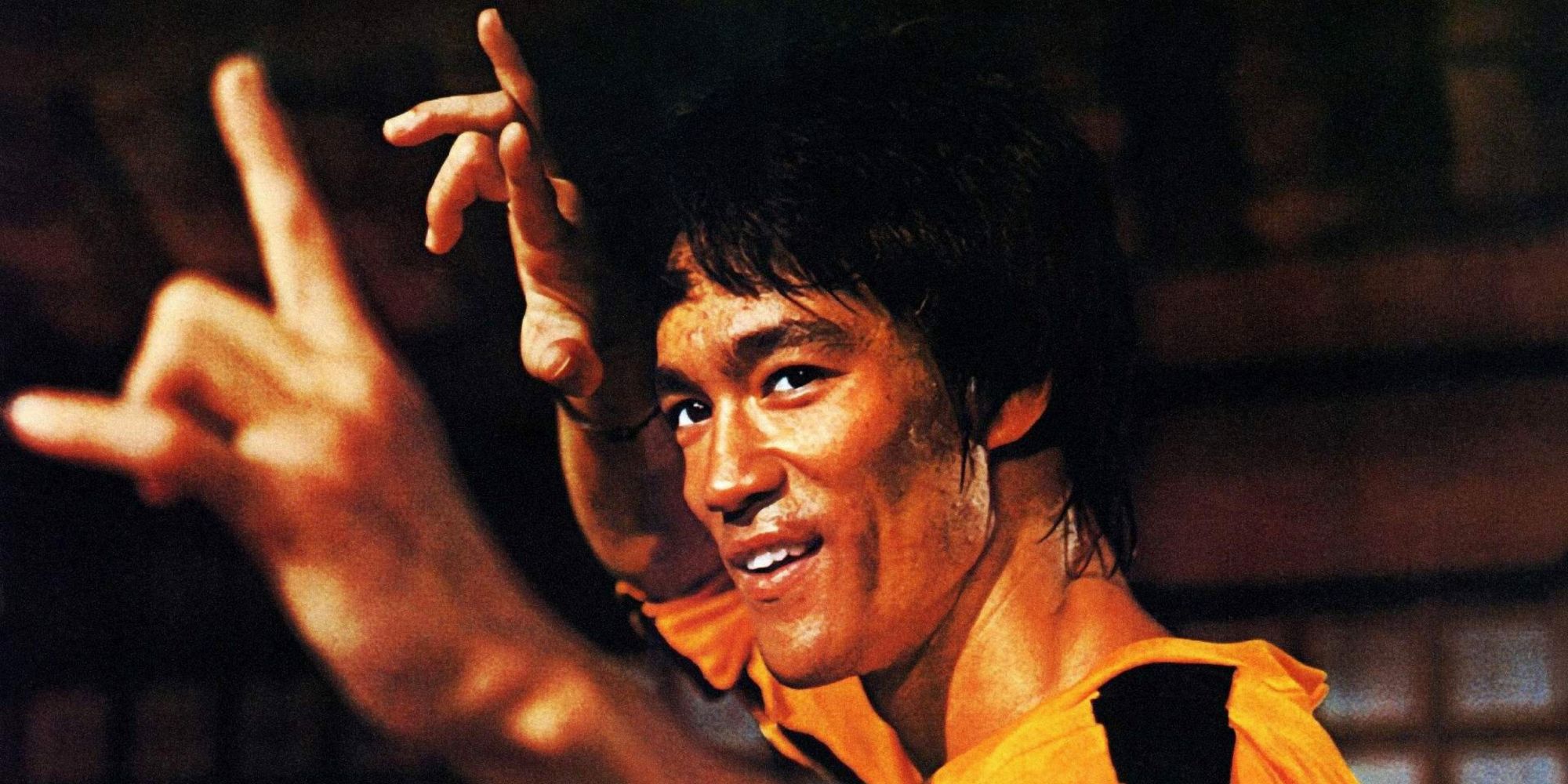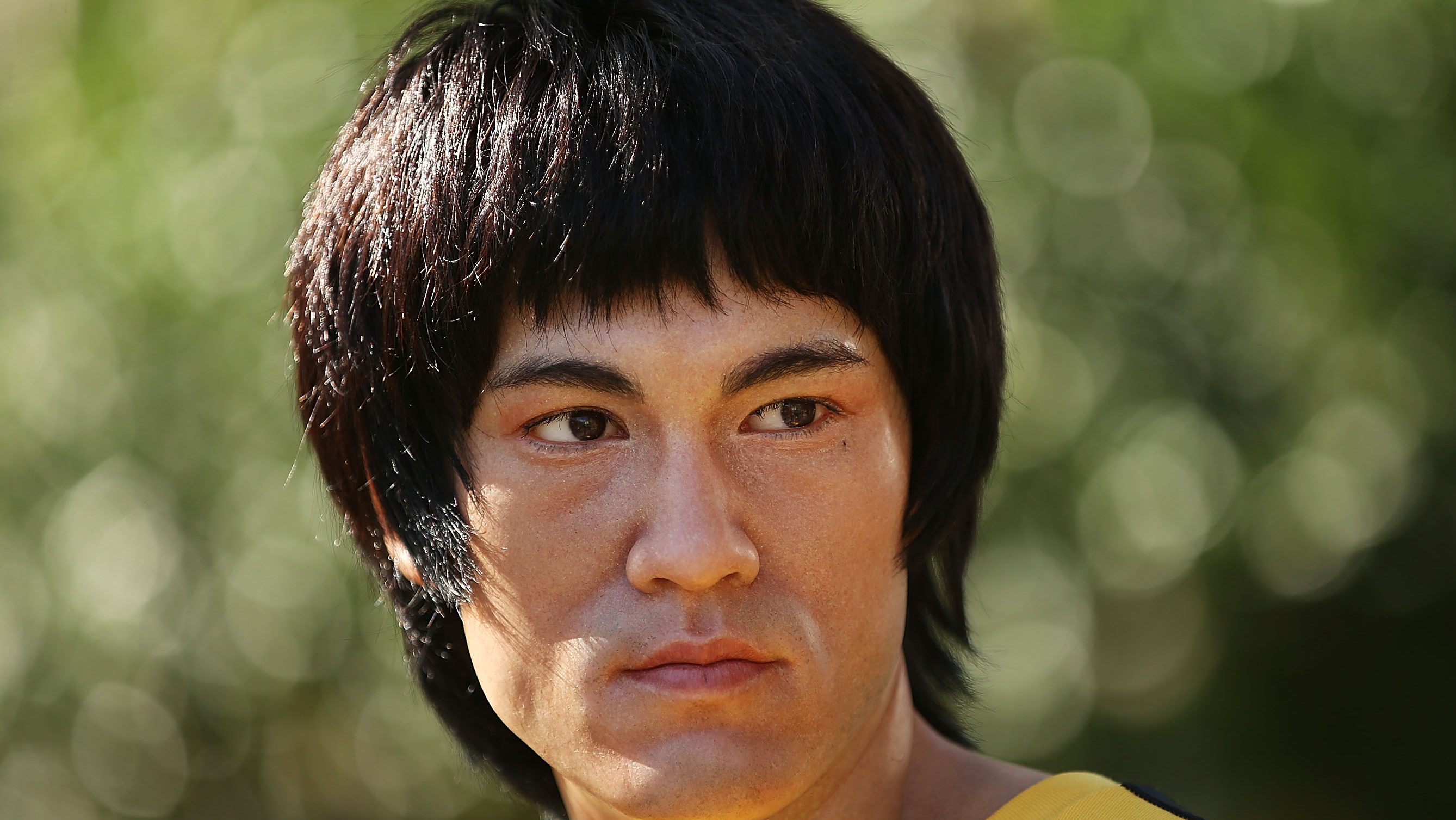Table of Contents
- Introduction: The Enduring Mystery of a Legend's Demise
- Bruce Lee: A Life of Unparalleled Influence
- Personal Data and Biodata
- The Fateful Day: July 20, 1973
- The Official Cause: Cerebral Edema
- Theories Unveiled: Beyond the Official Ruling
- The Preceding Incident: A Chilling Premonition
- Legacy and Lingering Controversy
- Conclusion: The Legend Lives On, The Mystery Endures
Introduction: The Enduring Mystery of a Legend's Demise
More than five decades have passed since the world lost Bruce Lee, the unparalleled martial arts icon whose influence continues to reverberate across generations. His sudden and untimely passing at the tender age of 32 on July 20, 1973, sent shockwaves globally, leaving millions in disbelief and sparking a myriad of theories about the true Bruce Lee cause of death. From the moment news broke, the circumstances surrounding his demise were shrouded in a veil of mystery, fueling speculation that persists even today.
Bruce Lee was not merely a martial artist; he was a cultural phenomenon, a philosopher, and an actor who single-handedly brought kung fu to the Western world. His dynamic performances, philosophical insights, and groundbreaking approach to martial arts redefined the genre and inspired countless individuals. This article delves deep into the perplexing question of what truly led to Bruce Lee's death, examining the official medical findings, the various hypotheses that have emerged over the years, and the enduring impact of his life and tragic end.
Bruce Lee: A Life of Unparalleled Influence
Bruce Lee's action career is the stuff of legends. Born Lee Jun-fan in San Francisco in 1940, he spent his formative years in Hong Kong, where he began his journey as a child actor, appearing in around 20 films. His early exposure to the film industry laid the groundwork for his future stardom. As a teenager, Lee immersed himself in Wing Chun kung fu under the tutelage of Ip Man, mastering the discipline and developing his own unique philosophy of martial arts, Jeet Kune Do – "the way of the intercepting fist."
Upon returning to his birth country, America, Lee continued to hone his craft, opening martial arts schools and teaching prominent Hollywood figures like Steve McQueen and James Coburn. His charisma and revolutionary fighting style quickly garnered attention. He donned a black mask to fight crime as Kato in the TV series "The Green Hornet," introducing martial arts to a wide American audience. However, it was his groundbreaking work in feature films like "Fist of Fury," "The Chinese Connection" (also known as "Fists of Fury"), "Way of the Dragon," and most notably, "Enter the Dragon," that cemented his status as a global superstar. In a film career that spanned just four years and five completed films, he symbolized a new kind of movie stardom before his untimely death. Even over 50 years after his death on July 20, 1973, he remains the martial arts movie star all other representatives of the genre are compared to. He inspired millions of people and brought attention to martial arts in the Western world, making him the most influential martial artist of all time.
Personal Data and Biodata
| Attribute | Detail |
|---|---|
| Full Name | Lee Jun-fan (李振藩) |
| Known As | Bruce Lee |
| Born | November 27, 1940 |
| Birthplace | Chinese Hospital, San Francisco, California, U.S. |
| Died | July 20, 1973 (aged 32) |
| Death Place | Hong Kong |
| Cause of Death (Official) | Cerebral Edema (brain swelling) |
| Burial Place | Lake View Cemetery, Seattle, Washington, U.S. |
| Nationality | American, Hong Kong (British) |
| Occupation | Martial Artist, Actor, Director, Producer, Screenwriter, Philosopher |
| Spouse | Linda Lee Cadwell (m. 1964) |
| Children | Brandon Lee, Shannon Lee |
| Years Active | 1946–1973 |
| Martial Arts Style | Jeet Kune Do (founder) |
The Fateful Day: July 20, 1973
On the afternoon of July 20, 1973, Bruce Lee was in Hong Kong, working on his upcoming film, "Game of Death." He met with producer Raymond Chow and actress Betty Ting Pei at her apartment to discuss the script. During their meeting, Lee reportedly complained of a headache. Ting Pei offered him an Equagesic, a common painkiller containing aspirin and the tranquilizer meprobamate. After taking the pill, Lee lay down to rest. He never woke up.
When Chow attempted to rouse him for dinner, Lee was unresponsive. Paramedics were called, and he was rushed to Queen Elizabeth Hospital. Tragically, by the time he arrived, he was already in a coma and pronounced dead shortly thereafter. The suddenness of his passing, just six days before the highly anticipated release of "Enter the Dragon" in Hong Kong, fueled immediate shock and disbelief worldwide. The question on everyone's mind was: what was the true Bruce Lee cause of death?
- How Old Is Will Ferrell
- Sidney Hicks
- Farmer Wants A Wife Season 2 Who Is Still Together
- Annie Wersching Tv Shows
- Fall Zodiac Signs
The Official Cause: Cerebral Edema
An autopsy was swiftly performed to determine the exact Bruce Lee cause of death. The findings were stark: Bruce Lee’s brain was immensely swollen, to over 13% of its normal size. Doctors finally determined his cause of death as cerebral edema, or swelling of the brain. This condition can cause severe symptoms such as nausea, headache, cramping, confusion, fatigue, seizures, and in severe cases, coma from rapid brain swelling. The official ruling stated that the cerebral edema was caused by an allergic reaction to a headache medication, specifically the Equagesic he had taken.
A month later, on September 3, an Associated Press report came out citing the cause, stating, “Bruce Lee, a star of kung‐fu movies, probably died of brain edema, an excess of fluid, that might have been caused” by the painkiller. This official explanation, while providing a medical term, did little to quell the widespread speculation and mystery surrounding his death, leading many to consider the circumstances of his death mysterious.
Theories Unveiled: Beyond the Official Ruling
Despite the official medical pronouncement, the public's appetite for answers about Bruce Lee's death remained insatiable. Lee's sudden death at 32 years old led to rumors and speculation about the cause of his demise, ranging from the plausible to the outright fantastical. While some considered the circumstances of his death mysterious, four primary theories have emerged over the years suggesting what may have caused his cerebral edema, extending beyond the simple allergic reaction.
The Painkiller Allergy Hypothesis
The initial and official explanation centered on an allergic reaction to the Equagesic. Per Republic World, Lee took an Equagesic, which contains aspirin and the tranquilizer meprobamate. The autopsy revealed he had no aspirin allergy or other symptoms that would typically indicate such a reaction. However, an idiosyncratic reaction to one of the components, particularly meprobamate, could theoretically trigger a severe allergic response leading to cerebral edema. This theory aligns with the initial medical findings but still leaves some questions unanswered, especially given Lee's robust health and athletic physique.
The Heatstroke Connection
Another prominent theory links Bruce Lee's death to heatstroke. The martial arts icon died from cerebral edema, a rare condition caused by heatstroke. This theory gained traction due to the hot and humid Hong Kong summer conditions at the time of his death. Heatstroke can indeed cause rapid brain swelling, leading to symptoms like confusion, seizures, and coma. A critical piece of information that supports this theory is that he had recently removed his sweat glands to avoid armpit odor. The removal of sweat glands, particularly from a large area, could impair the body's natural ability to regulate temperature, making him more susceptible to heatstroke. This could cause symptoms such as nausea, headache, cramping, confusion, fatigue, seizures, and in severe cases, coma from rapid brain swelling. While not the sole cause, heatstroke could have been a significant contributing factor to the cerebral edema, potentially exacerbated by other underlying conditions or medications.
The Hyponatremia Breakthrough (2018)
Nearly half a century following Bruce Lee’s death, a group of Spanish researchers in 2018 uncovered what they believe to be the mystery behind the martial arts star’s enigmatic demise. Publishing their findings in the Clinical Kidney Journal, the researchers concluded that Lee’s death was caused by “hyponatremia, or low sodium in the blood,” due to a high concentration of water in his system and kidney dysfunction. This groundbreaking theory suggests that Bruce Lee consumed an excessive amount of water, which his kidneys were unable to excrete efficiently, leading to a dangerous dilution of sodium in his blood. Hyponatremia can cause brain cells to swell as water moves into them, resulting in cerebral edema. Factors contributing to this could include chronic fluid intake, certain medications, or underlying kidney issues. This new cause of death has been floated for the legendary martial artist, offering a more comprehensive physiological explanation for the brain swelling.
Other Wild Speculations
Beyond the medically-oriented theories, there have been some wild theories about Bruce Lee's death. These range from assassination by triad gangsters, a curse on his family (often linked to the later death of his son, Brandon Lee), or even a secret martial arts technique. The 1993 biopic "The Bruce Lee Story," a true story, charts Bruce Lee's career until his death, but it also touches upon some of these speculative elements, reflecting the public's fascination with the unknown. However, these theories lack credible scientific or forensic evidence and are largely dismissed by medical professionals and investigators, though they continue to fuel the legend surrounding his untimely end.
The Preceding Incident: A Chilling Premonition
In a chilling twist, medical professionals and researchers later realized that Bruce Lee's death might have been prevented. Just two months before his demise, in May 1973, Lee had suffered a similar swelling episode while working on "Enter the Dragon." He collapsed during a dubbing session, experiencing convulsions and a severe headache. He was rushed to a hospital in Hong Kong, where doctors diagnosed him with cerebral edema. He recovered after receiving mannitol, a drug used to reduce brain swelling.
This prior incident is crucial because it indicates a pre-existing vulnerability or an underlying condition that was never fully diagnosed or addressed. The fact that he experienced a similar, life-threatening episode so recently suggests that his body might have been struggling with fluid regulation or an unusual sensitivity to certain substances. This makes the later event even more tragic, as it highlights a missed opportunity for a deeper investigation into his health that might have averted the final catastrophe and prevented Bruce Lee's death.
Legacy and Lingering Controversy
Bruce Lee’s death at the age of 32 from cerebral edema remains one of the most discussed and debated topics in martial arts and cinematic history. His body was returned to Seattle, where he was buried, a final resting place for a man who transcended cultural boundaries. Even with official medical explanations and new research, the mystery surrounding the Bruce Lee cause of death continues to fascinate and perplex. The controversies surrounding his death, whether due to a painkiller, heatstroke, or hyponatremia, only add to the mystique of a man who lived an extraordinary life.
He was a pioneer, an innovator, and a global icon whose impact is still felt today. His films broke barriers, his philosophy inspired millions, and his dedication to martial arts transformed the genre. The unanswered questions about his passing serve as a poignant reminder of his sudden departure, ensuring that the legend of Bruce Lee, and the debate over his final moments, will endure for generations to come.
Conclusion: The Legend Lives On, The Mystery Endures
The tragic and sudden death of Bruce Lee at 32 in 1973 from brain swelling, officially cerebral edema, has captivated public imagination for decades. While the initial ruling pointed to an allergic reaction to a painkiller, subsequent theories involving heatstroke, his sweat gland removal, and most recently, hyponatremia due


